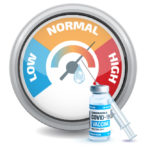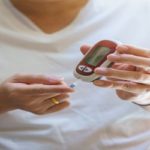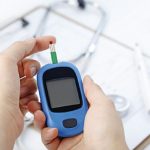Diabetes
Urban India Sicker than Rural India, says NHFS-5 (2019-21)
According to the Ministry of Health and Family Welfare report from the latest National Family Health Survey 2019-21 (NFHS-5), individuals in urban India appear to be sicker than individuals in rural India, in terms of the nutritional status and diseases such as anemia, diabetes and hypertension. This survey gathered information from 636,699 households, 724,115 women, and 101,839 men, between June 2019 and April 2021, providing data on key health indicators.
The key findings were as follows:
- Proportion of men and women with mildly/moderately/severely (≥140 mm Hg/ ≥90 mm Hg or 140-159 mm Hg/90-99 mm Hg or ≥160 mm Hg / ≥100 mm Hg) elevated blood pressure or taking medication to control blood pressure was significantly higher in urban areas than rural areas.
- Percentage of men and women with high blood sugar levels (>140 mg/dl or >160 mg/dl) was greater in urban areas when compared to men and women in rural areas.
- A greater percentage of children, men, and women from urban areas were found to be anemic and showed a greater decline in nutritional status and body mass index, when compared to rural areas.
- Rate of prevalence of childhood diseases was also observed to be higher in urban areas than rural areas.
These key findings from the above survey suggest that health of individuals is worsening in urban areas when compared to rural areas, with greater prevalence of diseases such as diabetes and hypertension in particular.
National Family Health Survey (NFHS-5), 2019-21: India. Mumbai: IIPS. India Fact Sheet. http://rchiips.org/nfhs/NFHS-5_FCTS/India.pdf Accessed on 14 December, 2021.

NFHS-5 (2019-21) Finds Indians Have More Health Risk Than Previously Recorded In NFHS-4 (2015-16)
Read More

Structured Blood Glucose Monitoring (BGM) vs. Continuous Glucose Monitoring (CGM) – What Leads to Improved Glucose Control?
Read More

Can a Telemedicine Management System Improve Self-Management and Treatment of Overweight/ Obese T2DM Patients?
Read More

Associations Between Poor Glycemic Control and Breakthrough SARS-CoV-2 Infection
Read More

Are Digital Diabetes Prevention Programs (d-DPPs) Effective in Improving Outcomes in Prediabetics?
Read More

Why Dietary Carbohydrate Restriction is Beneficial for T2DM Patients?
Read More

Is the ‘Plate Model’ an Effective Strategy for Improving Glycemic Control in T2DM Patients?
Read More

What is the Significance of Glycemic Variability in Diabetes Mellitus?
Read More

Can Foot-Ankle Exercise Intervention Programs Improve Gait Speed in People with Diabetic Neuropathy?
Read More

Is There An Association Between Antidepressant Use and Advanced Diabetes Complications?
Read More

Are Patients with T2DM at a Higher Risk of Experiencing Antibiotic-Resistant Bacterial Infections?
Read More

Can Textured Soybean Protein Consumption Improve Blood Biochemistry in Patients with T2DM?
Read More

Adding Liraglutide To SGLT2i And Metformin Regimen Improves Glycemic Control
Read More

Dapagliflozin improves albuminuria in patients with high cardiorenal risk
Read More

Higher Dose Of Semaglutide Found Safe For Additional Glycemic Control
Read More
